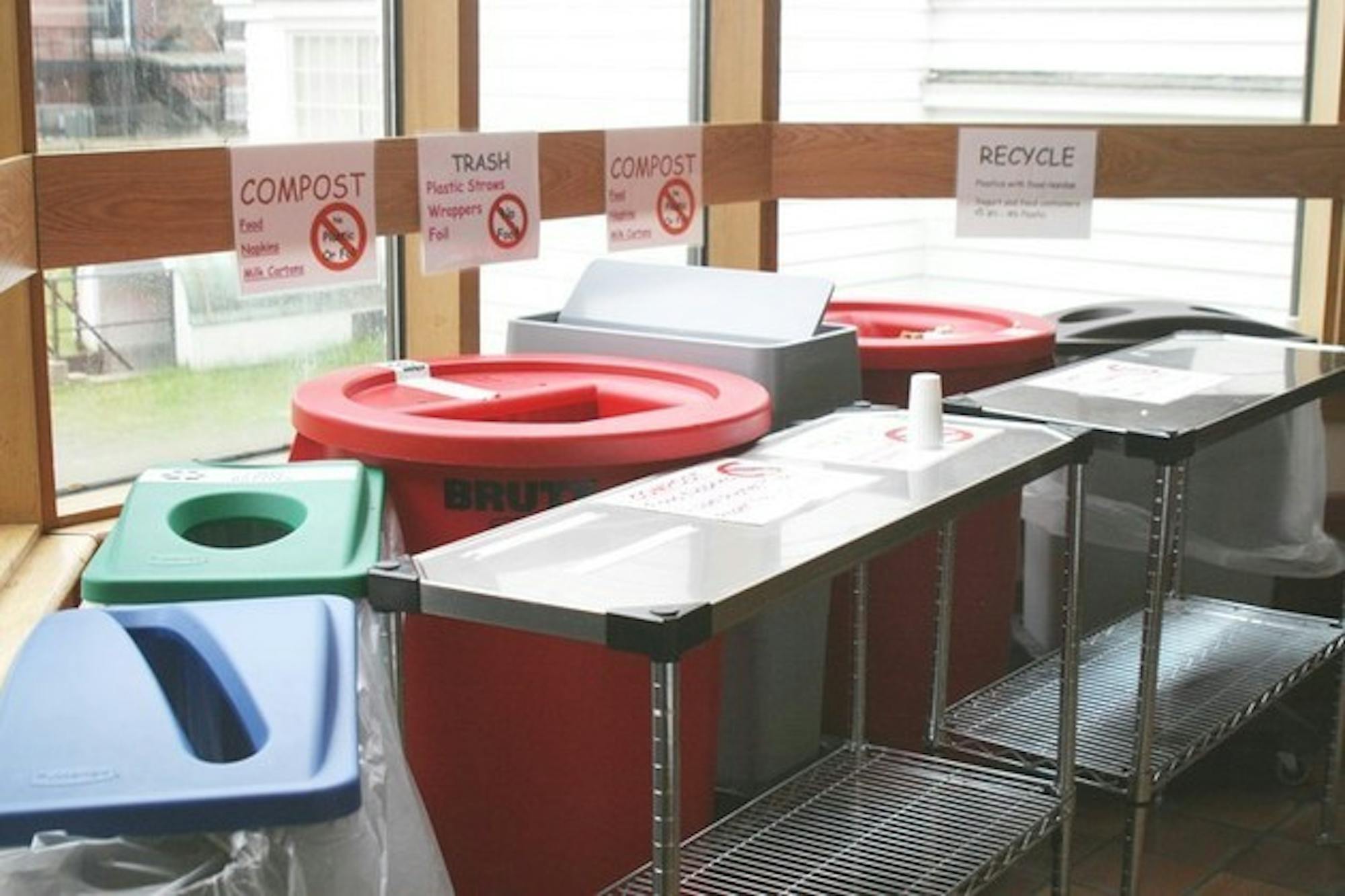"Everyone wants to see their institution perform well," Merkel said. "But I'm first committed to the planet. That's my primary loyalty; to planet Earth, even before Dartmouth."
Over 350 colleges and universities across the nation have sustainability coordinators. Though sustainability programs vary dramatically, many institutions are currently targeting carbon neutrality as their main project. Carbon neutrality means that the amount of carbon consumed by a college would equal that returned to the environment.
This reduces the input of carbon dioxide into the air, which is a greenhouse gas that contributes to global warming. Many scientists consider global warming to be the most pressing environmental issue today.
Whereas other campuses focus mainly on building construction and energy use reduction, Dartmouth's program is different because it emphasizes dining.
Despite Merkel's optimism, last year's dining revisions, which included getting rid of to-go containers, disposable silverware and individually packaged condiments, continue to be met with mixed opinions.
"The sorting can be an annoyance if you're in a hurry," Diane Ellis '08 said. "I have spilled food on myself in my rush to scrape my plate, so those are my minor qualms."
"The sorting probably happens a little better if it's your job, so it's hard [for students]. We actually try to have an intern at every meal at Home Plate. It's a lot of work, and still some students don't get it," Merkel said. "Five percent [of students], maybe less, just go up there, look at the sign and throw their garbage in the compost."
Other students remain indifferent.
"The changes don't really affect anything that much. You get your food, you throw it away. It's not that big of a deal," Tessa Winter '09 said.
Merkel's ultimate goal with sustainable dining is to extend the program to other dining halls and implement a campus-wide sustainable dining kit.
"The whole idea of starting with one [dining hall] is to make it successful and work out the bugs," Merkel said. "We're slowly shifting behavior and now we want to shift it to other halls."
The sustainable dining club is currently being used to test out sustainable dining kits, consisting of silverware, a water bottle, cloth napkin and plastic food container.
"The dining kits are in use. We had a trial group of 30 over the summer. Now we've expanded to 100, next 500, next the world," Merkel said.
Among Merkel's other sustainability initiatives are plans for waste reduction, input on new building projects, tighter energy controls, new light switch logos, energy feedback posters in 50 buildings and the solar thermal project.
The solar thermal project, which entails the construction of solar panels on top of select buildings on campus, is currently in the planning process. Merkel and his team have narrowed down six possible locations for the solar panels. One of the locations was found impractical due to its low use over the summer when sunlight would be strongest.
The drawback of solar thermal panels is that the season that the most energy is available for use also falls at the same time when most of the College's population is absent.
Several schools in the New England have opted for wind-powered energy over solar power, such as the College of the Atlantic, which has made a 20-year commitment to purchasing Maine-based wind energy for 100 percent of its electricity needs.
Merkel aims to expand the sustainability department in a number of ways.
"We have a project called Sustainable Greeks. What we're looking to do is to cultivate a sustainability coordinator in every house," Merkel said. "One thing they hadn't realized was that the cans and the plastic cups can all be recycled together...No one knew it, so they were all ending up in the garbage."
Merkel also hopes to set up sustainability coordinators in each building or department on campus.
"I know students really care...Sometimes you have to give them a chance to care," Merkel said. "Our hope is that the students will leave Dartmouth understanding all this stuff, like setting up a compost bin in the backyard. That's like being a global citizen today."




